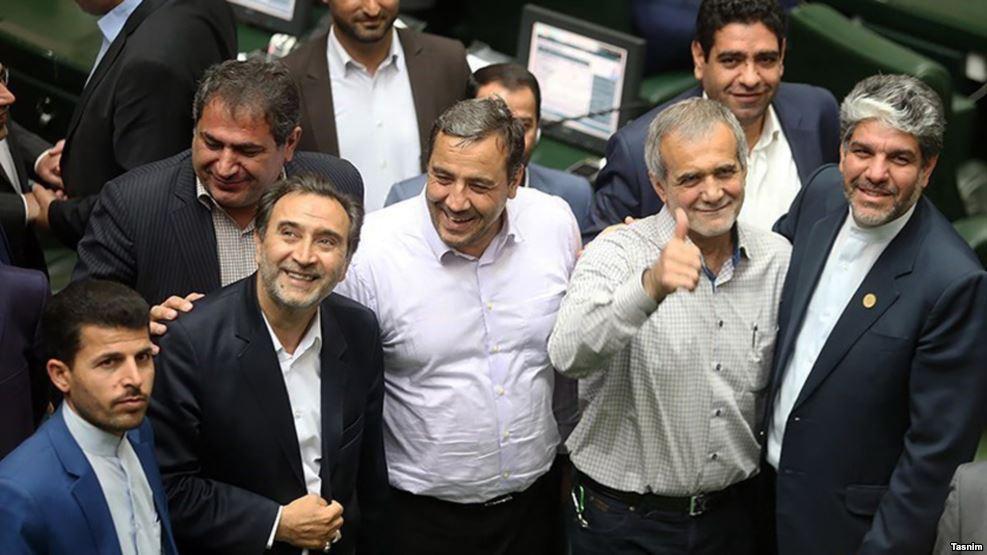
Ethnic issues appear pivotal in Iran's policy making
By Umid Niayesh– Trend:
Iranians of my age may remember a famous dialogue from the movie 'The Sunny Man' (1995), where a man speaking with Azerbaijani accent advises his son, who is going to Japan for work, to find Turks there and benefit from their help. In response to his son's wonder, the man continues: 'Turks are everywhere.'
That short dialogue actually still reflects the ethnic reality of Iran's population. It is almost impossible to visit any city across the country and not hear somebody speaking in Turkic language dialect. Country's main Turkic language speakers – Azerbaijanis, live mainly in north-western areas, where Iran shares borders with the Republic of Azerbaijan and Turkey – two countries with Turkic speaking population.
There aren't any accurate or official statistics in reference to the number of Turkic-speaking population of Iran. Nonetheless, Ali Akbar Salehi, Islamic Republic's former Foreign Minister, during his visit to Turkey in 2012, had stated that about 40 percent of Iranians speak Turkish.
Notwithstanding, at least for the last 100 years, various governments of Iran have seen Turkish language as a national security threat, and have neglected the Azerbaijanis civil rights, including education in their mother tongue.
Last October, for the first time in the Islamic Republic's history, Iran's Turkic-speaking Members of the Parliament (MP), including Azerbaijanis, formed a parliamentary faction called 'Faction of Turkic Regions,' which included about one-third of the country's 290-seat legislative body.
That daring move was met by very serious criticism on the part of the various power and intellectual circles, which viewed it as a threat aimed against Iran's national unity through intensification of ethnic sectarianism. Later on, one of Azerbaijani MPs had announced disbandment of the faction, relating it to some 'sensitivities' about the usage of the word 'Turk' in its title, and its replacement with a new one called 'North-western provinces faction'.
In the following months no information related to the faction's activities was shared with public. It actually shifted to 'silent mode' till last week, when President Hassan Rouhani introduced his new Cabinet of Ministers to the Parliament.
Some Azerbaijani MPs has criticized Rouhani for not including any Azerbaijani nominees for ministerial positions, reflecting upon the country's largest ethnic group's concern about lack of share in the power structure.
Nonetheless, later on, Hadi Bahadori, pro-Rouhani Azerbaijani MP, stated that Faction of Turkic Regions has held a meeting with the nominees and five of them, including candidates for Defense, Intelligence and Interior ministries, are ethnically Turks, who have spoken in Turkish during the meeting. Related video, showing Abdolreza Rahmani Fazli, nominee for the Interior Ministry, speaking in Persianized (poor) Turkish during the meeting with the faction, was released in social media. That move, on one hand, indicates that Turkic MPs have a significant political weight in the Iranian Parliament and, on other hand, may be considered as an effort to assure Azerbaijanis about their share in the important power bodies.
Zahra Saei, the spokeswoman for Turkic Regions Faction, also said that, MPs meeting with the Intelligence ministry nominee Mohmoud Alavi, stating that education in their mother tongue 'is one of the demands of Azerbaijani people,' had requested the elimination of security approach towards the implementation of the .
Actually the issues related to the ethnic groups' rights have found their way to Iran's political discourses in recent years. Furthermore, politicians have started to refer to it more frequently, especially during the elections.
In fact, nowadays, some ethnic Turks in the administration's inner circles are posing demands, which were tabooed for years and could have caused serious consequences for demander's security.
It cannot be denied that ethnic consciousness has significantly increased among the Iranian ethnic groups, including Azerbaijanis, in recent years. Nevertheless, geopolitical conditions in the region and concerns about the country's territorial integrity, as well as radicalization of ethnic groups' demands has forced the Iranian administration to be more attentive to the issue.
Specifying the share of the two (domestic and foreign) factors in the formation of the government's new policy requires additional research. Nonetheless, there isn't any doubt that these factors have pushed Iranian policy-makers into a new path and ethnic issues will play a pivot role in Iran's policy-making procedures and its future.
---
Umid Niayesh is Trend Agency's staff journalist, follow him on Twitter:

Legal Disclaimer:
MENAFN provides the
information “as is” without warranty of any kind. We do not accept
any responsibility or liability for the accuracy, content, images,
videos, licenses, completeness, legality, or reliability of the information
contained in this article. If you have any complaints or copyright
issues related to this article, kindly contact the provider above.


















Comments
No comment